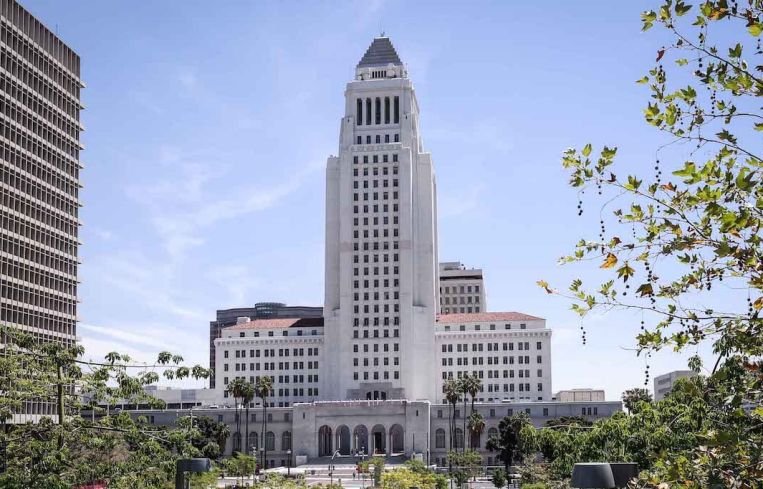LA Moves to Modify Zoning and Entitlement Process Amid City Hall Corruption Scandal
New proposals would further limit developers while Councilman Huizar faces federal charges for allegedly scheming with real estate firms
By Greg Cornfield August 20, 2020 12:15 pm
reprints
Los Angeles officials are proposing more land use regulations and changes to the entitlement process in response to the ongoing federal corruption investigation at City Hall tied to real estate developers.
City Council President Nury Martinez introduced three motions that would update L.A.’s zoning code and shift the way development projects are reviewed. The proposed changes come after suspended Councilman Jose Huizar was charged with 34 felony counts — including bribery, extortion and money laundering — after allegedly directing a “money-making criminal enterprise” and running pay-for-play schemes with developers in his district.
Huizar pleaded not guilty earlier this month. But, in June, former Councilman Mitchell Englander pleaded guilty after allegedly trying to cover up other cash payments and illicit bribes from developers.
Martinez’s motions also follow a proposed ordinance from City Attorney Mike Feuer that would allow L.A. to revoke development permits “where there exists the taint of corruption or fraudulent activity,” including for the projects implicated in the investigation.
Martinez said restoring the public’s trust in city government “is job one,” and she introduced the motions to “close loopholes that corrupt individuals might use to their advantage.” One motion would introduce a ballot measure that would direct the city to update its zoning code and dramatically limit entitlements developers seek beyond what is allowed under zoning rules, such as general plan amendments and other concessions.
“Our planning and land use process is flawed, and at the root of our challenges is the outdated zoning code,” said Councilman Marqueece Harris-Dawson, who seconded the motion, in prepared remarks. “Reforming our zoning code … will help to improve how planning is conducted in the city, ensuring that projects that are built reflect the changes that residents want to see in their communities.”
Another proposal would send “high-value” projects — or “mega-million dollar” development proposals — from the City Planning Commission directly to the City Council for consideration, skipping over the Planning & Land Use Management Committee (PLUM), which was formerly led by Huizar and previously included Englander.
A third motion aims to make the development process more transparent by ensuring all contact between developers and council members’ offices are part of the public record.
“The city has a general plan and a zoning code for a reason — so development will take place in a predictable way according to the needs of the city and the public,” said Councilman Paul Krekorian, who seconded the motion on increasing transparency. “The general plan and zoning codes were created with the public’s participation to protect the public’s interests. If development decisions rely excessively on variances and exceptions from the general plan and the zoning code, then our land use laws will soon lose their significance.”
The motions were referred to PLUM and the Rules, Elections & Intergovernmental Relations Committee, where they will generate reports from staff before coming back to the City Council for discussion and approval.



